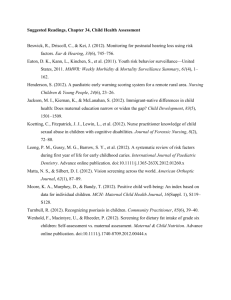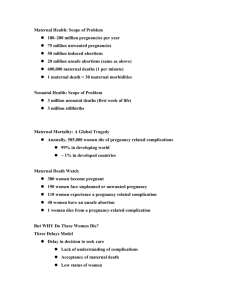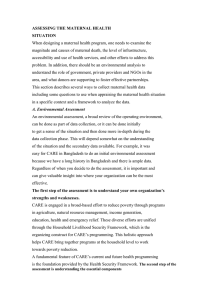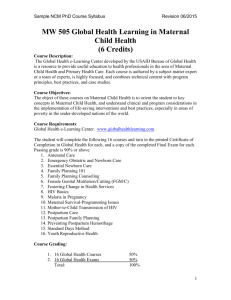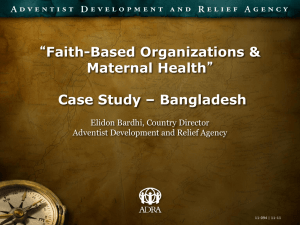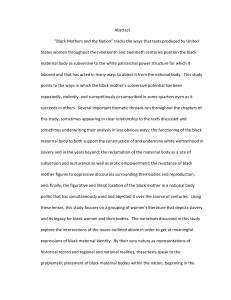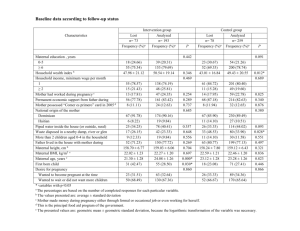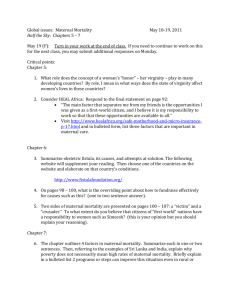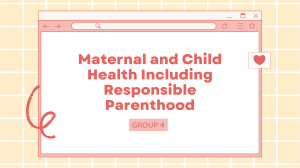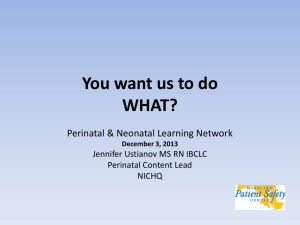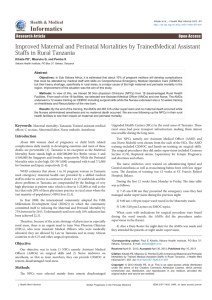TRAINING OF ADVANCED LEADERS IN MATERNAL AND NEONATAL HEALTH IN TANZANIA 1 Introduction
advertisement
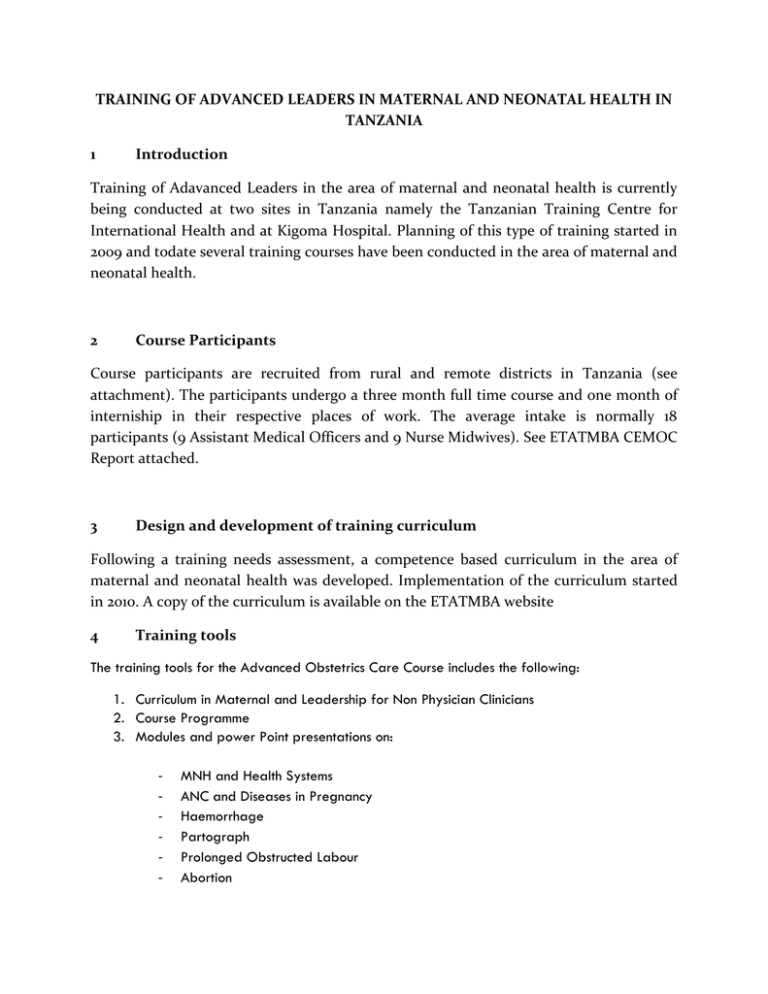
TRAINING OF ADVANCED LEADERS IN MATERNAL AND NEONATAL HEALTH IN TANZANIA 1 Introduction Training of Adavanced Leaders in the area of maternal and neonatal health is currently being conducted at two sites in Tanzania namely the Tanzanian Training Centre for International Health and at Kigoma Hospital. Planning of this type of training started in 2009 and todate several training courses have been conducted in the area of maternal and neonatal health. 2 Course Participants Course participants are recruited from rural and remote districts in Tanzania (see attachment). The participants undergo a three month full time course and one month of interniship in their respective places of work. The average intake is normally 18 participants (9 Assistant Medical Officers and 9 Nurse Midwives). See ETATMBA CEMOC Report attached. 3 Design and development of training curriculum Following a training needs assessment, a competence based curriculum in the area of maternal and neonatal health was developed. Implementation of the curriculum started in 2010. A copy of the curriculum is available on the ETATMBA website 4 Training tools The training tools for the Advanced Obstetrics Care Course includes the following: 1. Curriculum in Maternal and Leadership for Non Physician Clinicians 2. Course Programme 3. Modules and power Point presentations on: - MNH and Health Systems ANC and Diseases in Pregnancy Haemorrhage Partograph Prolonged Obstructed Labour Abortion 4. 5. 6. 7. 5 - Pre-eclampsia - Immediate Newborn Care - Criterion based Audit in Obstetrics - Clinical Leadership E-Learning package in maternal health Advanced Life Saving Skills Booklet by MOHSW Beyond the Numbers: A Manual by WHO Monitoring Emergency Obstetric Care by WHO Content related to the course The content of the course is organized along priority areas that need to be addressed. To ensure consistency and quality of learning the Facilitators are required to prepare Power Point Presentations in their areas of expertise (see a sample of attached PPP). 6 Training process The training process involves a variety of methods including classroom lectures, clinical work at the hospital, demonstrations in the clinical skills laboratory and maternal audits. Participants are regularly supervised and assessed using a Log book and OSCE to determine how they are progressing. A presentation on Training NPCs detailing the training process is attached 7 Post course Assessment and Continuing education After completing the course, participants are assessed using specifically designed tools such as the Log Book and a Competence rating scale (see attachment on Log book and Competence assessment scale) to determine whether they are still competent. Where there are deficiencies, mentoring is employed to update the NPCs and to support them to continue providing quality services.
